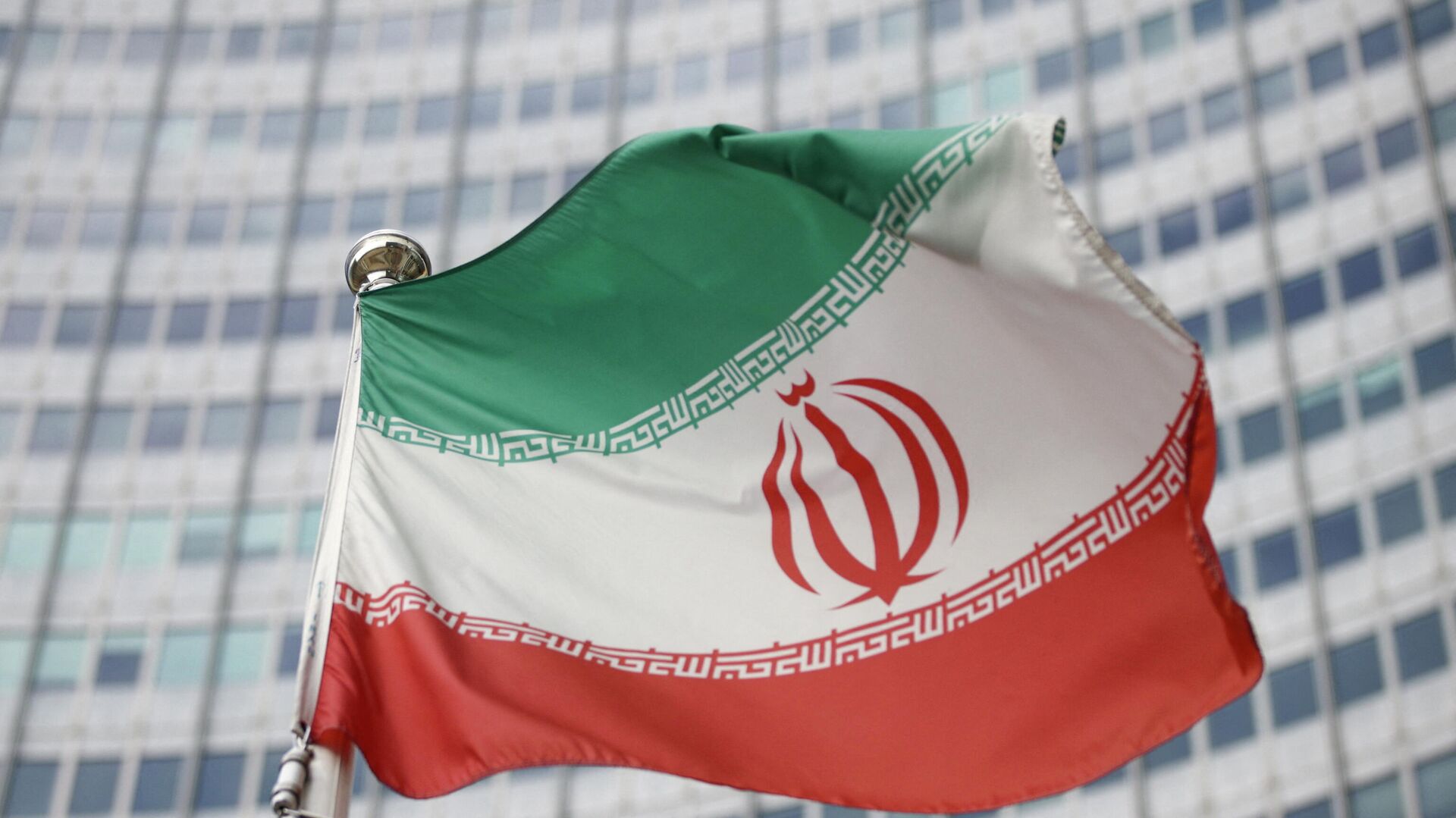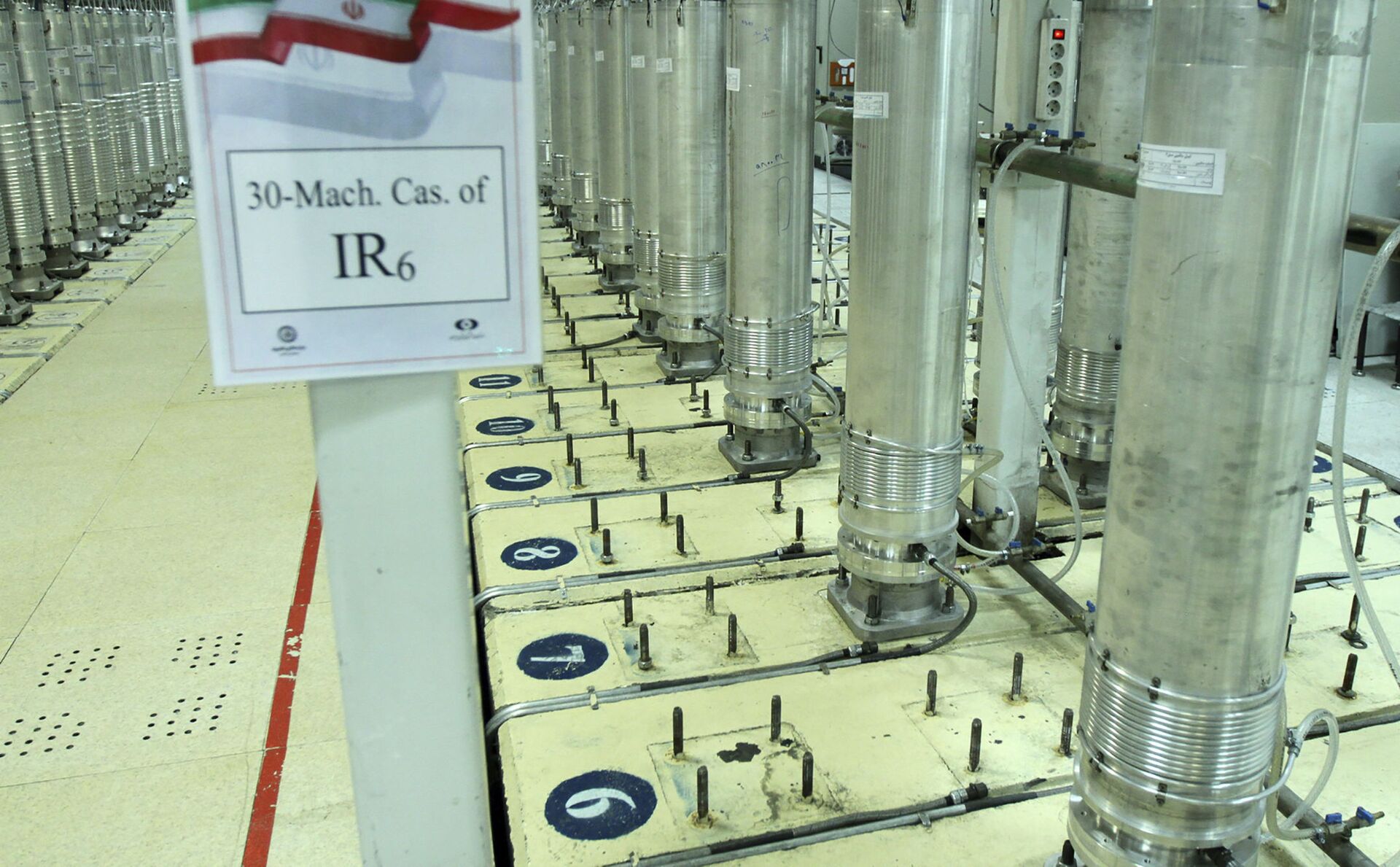Only ‘Handful of Weeks Left’ Before JCPOA Return Deemed Impossible, Senior US Official Claims
00:20 GMT 01.02.2022 (Updated: 13:28 GMT 06.08.2022)

© REUTERS / Lisi Niesner
Subscribe
Even though negotiations on reviving the 2015 Iran nuclear deal seem to be nearing success, American officials have repeatedly claimed that time is running out. However, Tehran has rejected the characterization, saying the US should focus on success in the talks instead of what will happen if they fail.
Although returning to negotiations in Vienna took place several months after Iranian President Ebrahim Raisi took office in August, shortly after the seventh round concluded in December, an eighth round began, and the two sides seem to have an increasing number of points they agree upon.
The US left the nuclear deal in 2018, pulling out unilaterally and reimposing economic sanctions against Iran after claiming it had secretly violated the 2015 deal, which restricts how much uranium Iranian officials can refine and at what purity. After most other nations party to the deal agreed to follow US sanctions, Tehran began backing off its commitments under the deal, increasing the quality and quantity of uranium it produced in a calculated bid to pressure Washington toward returning to the deal.
The US began talks paving a path to returning to the nuclear agreement shortly after the inauguration of US President Joe Biden, who said the Joint Comprehensive Plan of Action (JCPOA) had been the best way to prevent Iran from obtaining a nuclear weapon, despite Tehran’s pleadings it is not pursuing such a weapon.
"We are in the final stretch because as we've said now for some time, this can’t go on forever because of Iran's nuclear advances," an unnamed senior US State Department official told reporters during a Monday press briefing.
"We only have a handful of weeks left to get a deal, after which point it will unfortunately be no longer possible to return to the JCPOA,” they added.
The official explained that the timeline came from Washington's belief that Iran would soon reach a “breakout” point that would accelerate their pursuit of a nuclear weapon.
"I think it is fair to say that when it comes to their capacity to have enough material, in which weapons grade for [a] bomb, we are talking about weeks, not months. That's different from the timeline for weaponization, for having a bomb, but we are very focused on the JCPOA, on ensuring that they don't reach that threshold in terms of breakout timeline on the enrichment side," the official said on Monday.
However, the US has made such claims about time running out before. After the seventh round concluded last month, White House national security adviser Jake Sullivan said the talks would end “within weeks,” when it became clear "whether Iran is ready for the diplomatic solution.” After US Secretary of State Antony Blinken made similar comments earlier in January, Iranian Foreign Ministry spokesperson Saeed Khatibzadeh fired back, saying the Americans “need to make every effort to show that they have the necessary will and capacity for a Plan A” instead of talking about “Plan B.”
“Blinken knows better than anyone that every country has a B Plan for itself and that Iran’s Plan B may not be very appealing to them,” Khatibzadeh added.
The Vienna talks have been taking place between intermediaries since the Americans refused to negotiate directly with their Iranian counterparts. The Biden administration has sent indications it might be willing to engage in direct talks, but the unnamed State Department official said on Monday they had “not met directly yet.”

This photo released on Tuesday, Nov. 5, 2019, by the Atomic Energy Organization of Iran shows centrifuge machines in Natanz uranium enrichment facility in central Iran. Iran announced on Monday that had started gas injection into a 30-machine cascade of advanced IR-6 centrifuges in Natanz complex
© AP Photo / Atomic Energy Organization of Iran
“We have no indication that’s going to be the case when we reconvene," the official said. "These are complicated negotiations with room for a lot of misunderstanding, a lot of misinterpretation and miscommunication, and we think it would be facilitated by direct talks and accelerated by direct talks."
Nukes Given Up Decades Ago
Iran once had a nuclear weapons program in the 1950s, when it was still a monarchy closely allied with the US and UK. Western cooperation ceased and the program went underground after the 1979 Islamic Revolution, which brought a nationalist, anti-Western government to power, and continued when Iraq invaded Iran the following year, as Iraq was also in pursuit of a nuclear weapon. However, the International Atomic Energy Association (IAEA) said Iranian nuclear weapon experiments ended in 2003, and that their entire program was shut down by 2009, when Ayatollah Ali Khamenei issued a ruling declaring using nuclear weapons, and all weapons of mass destruction, to be violations of Islam.
When the US left the JCPOA in 2018, then-US President Donald Trump claimed Iran had secretly revived its nuclear weapons program and was once again pursuing a bomb. However, Iran has denied those claims, and the Trump administration never produced compelling evidence to the deal’s other signatories, which include the UK, France, Germany, Russia, China, and the European Union.
More recently, Israeli military intelligence said in October 2021 that while Iran had produced a “disturbing” amount of U-235, “in all other aspects of the Iranian nuclear project, we see no progress - not in the weapons project, in the financial area, not in any other sector.”
"To the best of our knowledge, the directive has not changed and they are not heading toward a breakout,” Maj. Gen. Tamir Hayman, then head of Israel's Military Intelligence Directorate, told Walla News. “They are not heading toward a bomb right now: It may be in the distant future.”
Iran says it has only produced uranium to a purity of 60% U-235, which is insufficient to produce a nuclear bomb. According to the Lawrence Livermore National Laboratory, the US research center responsible for designing many of the Pentagon’s nuclear weapons, a weapon using uranium with a purity of less than 90% “would not be practicable to design” as it would be prohibitively large to be used as a weapon.
